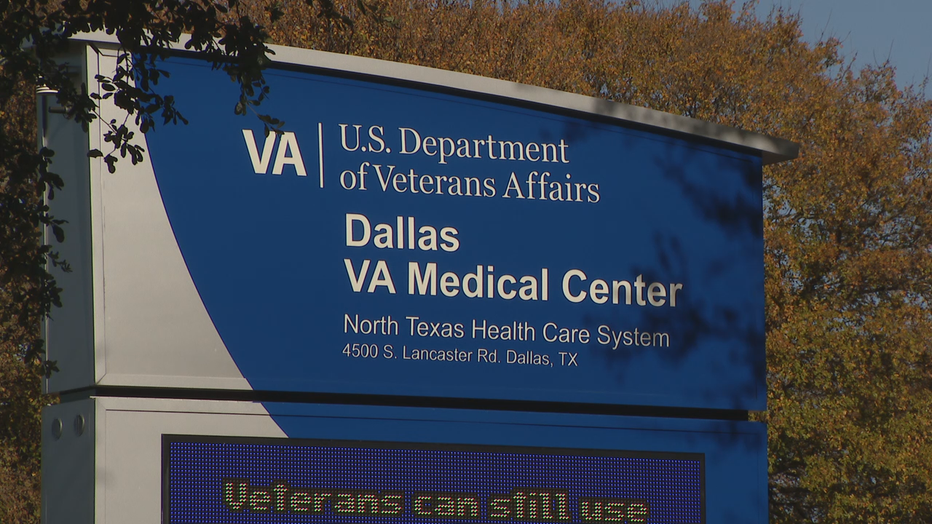Discussion held to see how COVID-19 has changed health care for North Texas veterans
FORT WORTH, Texas - Military members were celebrated across the U.S. this Veterans Day, including events here in North Texas.
A flyover kicked off a motorcade of cars, motorcycles, and other vehicles in Fort Worth Wednesday morning.
The Tarrant County Veterans Council put together the event a little differently this year.
Instead of bands and other marching units on the ground, the procession was made up of vehicles only in order to keep crowds at a minimum.
Veterans were honored Wednesday, but their health problems are being magnified by the pandemic.
Last month, the Veterans Health Administration released a 557-page COVID-19 Response Report.
It talked about the challenges that have emerged for veterans accessing health care during the pandemic.
An important conversation about their health and well-being during the pandemic took place right here in North Texas.
TCU and UNTHSC School of Medicine hosted an online chat about how COVID-19 has changed health care for some 8 million veterans nationwide.
About half seek medical care within the VA system, while others seek outside help.
“We had to get real comfortable overnight with tele-health, with the COVID hitting. We had to shut down our clinics,” said Dr. Grant Fowler, who is the chair of the Department of Family Medicine at TCU and UNTHSC School of Medicine in Fort Worth.
Dr. Fowler said there's roughly 100,000 veterans who live in Tarrant and Dallas counties.
A national summary of COVID-19 among veterans estimates 1,000 of them in those two counties have tested positive for the coronavirus.
“And currently, as of yesterday, there were 127 active cases and 51 known deaths,” said Prescotte Stokes, who was the moderator for the online chat.

Dr. Fowler said many veterans are afraid to go to a hospital or see their doctor in-person due to fear of getting COVID, who is leading to other health problems.
“We saw people on the phones and said, ‘Hey, you need to go to the ER,’ [and they] didn't and they had bad outcomes early in the pandemic,” he explained. “We're seeing worse cancers being diagnosed because they've been afraid to access health care system to get those screenings done.”
Kyle Simon is an Army veteran and first-year medical student at TCU and UNTHSC School of Medicine.
“How do we engage those communities who have been under-represented in health care?” he asked. “I'm really looking forward to learning how to do [that] and bring my experience from school to active duty service.”
“We're all in this together for the veterans,” Dr. Fowler added.
Dr. Fowler is urging veterans to take advantage of tele-medicine appointments.
He said the VA health care system has a very good program in place.

